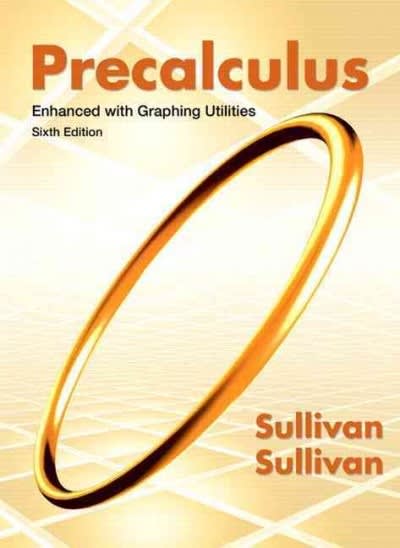Question
Hello, can someone help me with these questions please? i need some explanations. Thank you! 1.The human genome is composed of the four DNA nucleotides:
Hello,
can someone help me with these questions please? i need some explanations.
Thank you!
1.The human genome is composed of the four DNA nucleotides: A, T, G, and C. Some regions of the human genome are extremely G-C rich (i.e. a high proportion of the DNA nucleotides there are guanine and cytosine).Other regions are relatively A-T rich (i.e. a high proportion of the nucleotides there are adenine or thymine). Imagine that you want to compare nucleotide sequences from two regions of the genome.Sixty percent of the nucleotides in the first region are G-C (30% each of guanine and cytosine) and 40% are A-T rich (20% each of adenine and thymine). The second region has 25% of each of the four nucleotides.
a.If you choose a single nucleotide at random from each of the two regions, what is the probability that they are the same nucleotide?
b.Assume that nucleotides over a single strand of DNA occur independently within regions and that you randomly sample a three nucleotide sequence from each of the two regions.What is the chance that these two triplets are the same?
2.A seed randomly blows around a complex habitat.It may land on any of three different soil types: a high-quality soil that gives a 0.8 chance of seed survival, a medium quality soil that gives a 0.3 chance of survival, and a low quality soil that gives a 0.1 chance of survival.These three soil types (high, medium, low) are present in the habitat in proportions of 30:20:50 respectively.The probability that a seed lands on a particular soil type is proportional to the frequency of that type of habitat.
a.Draw a probability tree to determine the probabilities of survival under all possible circumstances.
b.What is the probability of survival of the seed, assuming it lands?
c.Assume that the seed has a 0.2 chance of dying before it lands in a habitat. What is its overall probability of survival?
3.During the Manhattan Project, the physicist Enrico Fermi asked Leslie R. Groves, the general in charge, "How do you define a 'great general'?"General Groves replied, "Any general who wins five battles in a row is great."He went on to say that only about 3% of generals are great.If battles are won entirely by random with a probability of 0.5 per side, what fraction would be considered great by this definition?How does this compare to the percentage given by the general?
4.Three variants of the gene encoding for b-globin component of hemoglobin occur in the human population of the Kassena-Nankana district of Ghana, West Africa.The most frequent allele, A, occurs at frequency 0.83. The other two variants, S ("sickle cell") and C, occur at frequency 0.04 and 0.13 respectively.Each individual has two alleles determining its genotype at the b-globin gene. Assume that knowing the identity of one of the alleles of any individual provides no information about the identity of the second allele (i.e., alleles occur independently in individuals).
a.CC individuals, having two copies of the allele C, are slightly anemic.What is the probability that a randomly sampled individual from the population has two copies of the C allele (i.e. what is the probability that the persons first allele is C and that his or her second allele is also C)?
b.What is the probability that a randomly selected individual is a homozygote?
c.Compared with AA individuals, AS and AC individuals are largely resistant to malaria, which is endemic in the region. They also experience fewer deleterious side effects than SS and CC individuals. What is the probability that a randomly sampled individual is AS? (Remember that if an individual can be AS by getting A from mom and S from dad or by getting S from mom and A from dad).
d.What is probability that a randomly selected person is AC or AS?
Step by Step Solution
There are 3 Steps involved in it
Step: 1

Get Instant Access to Expert-Tailored Solutions
See step-by-step solutions with expert insights and AI powered tools for academic success
Step: 2

Step: 3

Ace Your Homework with AI
Get the answers you need in no time with our AI-driven, step-by-step assistance
Get Started


